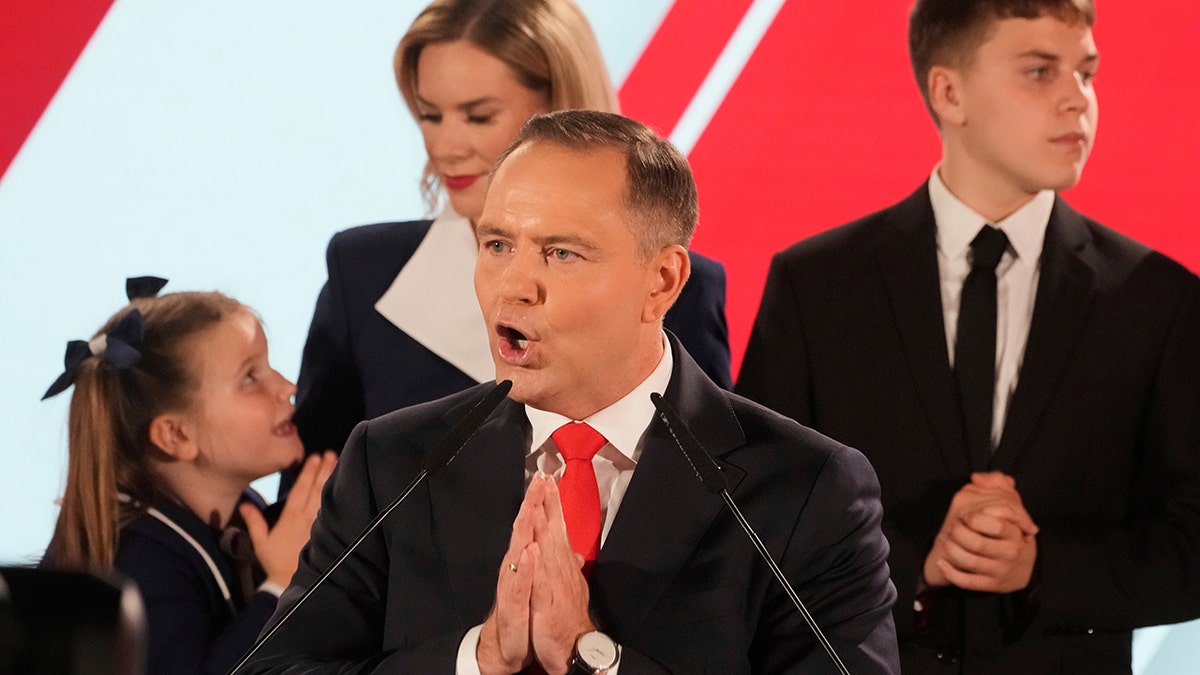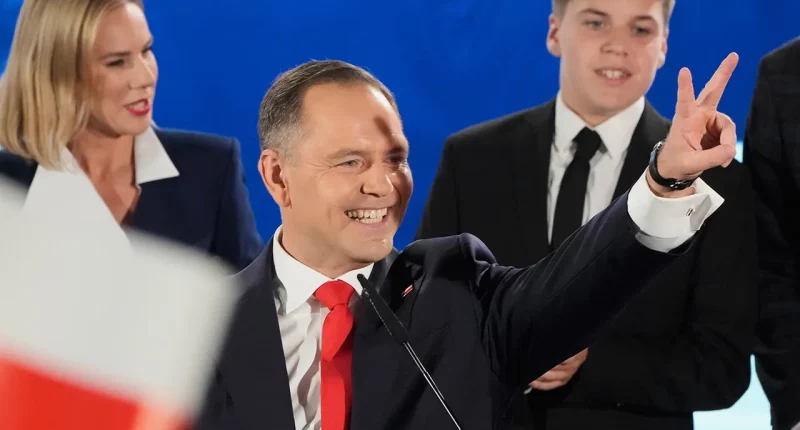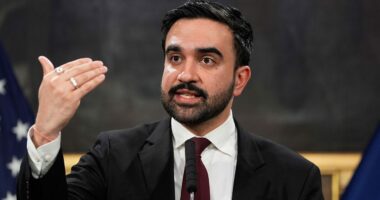Share this @internewscast.com
Poland has chosen Karol Nawrocki as the country’s president in a runoff election, with support from President Donald Trump, according to the final vote tally released on Monday.
Nawrocki secured 50.89% of the vote, narrowly defeating liberal Warsaw Mayor Rafał Trzaskowski, who garnered 49.11%, as reported by the Associated Press.
The initial round of voting, conducted two weeks prior, highlighted significant divisions within the country, which is situated on NATO’s eastern flank and is a member of the European Union. Nawrocki is set to replace Andrzej Duda, a conservative president whose second and final term concludes on August 6.
Trzaskowski conceded defeat and congratulated Nawrocki on Monday, thanking all those who voted for him.
Nawrocki, a 42-year-old amateur boxer and historian, has also echoed some of Trump’s language on Ukraine. He promises to continue Poland’s support for Ukraine but has been critical of Zelenskyy, accusing him of taking advantage of allies. He has accused Ukrainian refugees of taking advantage of Polish generosity, vowing to prioritize Poles for social services such as health care and schooling.
Hungarian Prime Minister Viktor Orbán, who shares Nawrocki’s national conservative worldview, hailed Nawrocki’s “fantastic victory.”

Presidential candidate Karol Nawrocki, a conservative historian backed by the right-wing Law and Justice party addresses supporters at his headquarters after the presidential election runoff in Warsaw, Poland, on Sunday, June 1, 2025. (AP Photo/Czarek Sokolowski)
Meanwhile, European Commission President Ursula von der Leyen offered measured congratulations, emphasizing continued EU-Poland collaboration rooted in shared democratic values: “We are all stronger together in our community of peace, democracy, and values. So let us work to ensure the security and prosperity of our common home.”
Nawrocki’s victory is a comeback for the Law and Justice party, which governed Poland from 2015 to 2023, when it lost power to Prime Minister Donald Tusk’s centrist coalition.
Duda’s veto power has been one obstacle to the pro-European Union Tusk in fulfilling certain electoral promises, such as loosening restrictions on abortion or passing a civil partnership law for same-sex couples. Some observers in Poland have said the unfulfilled promises could make it more difficult for Tusk to continue his term until the next parliamentary election scheduled for late 2027, particularly if Law and Justice dangles the prospect of future cooperation with conservatives in his coalition.
The Associated Press contributed to this report.

















